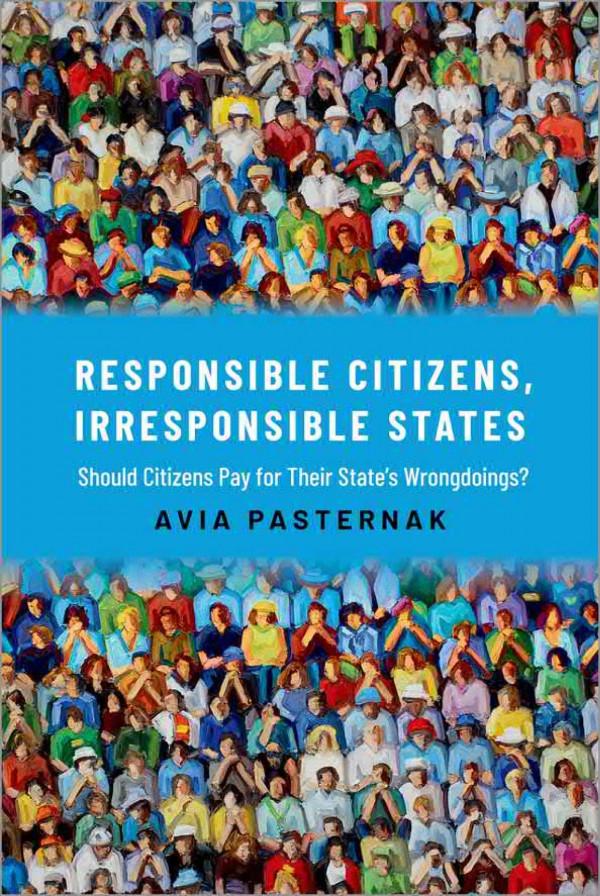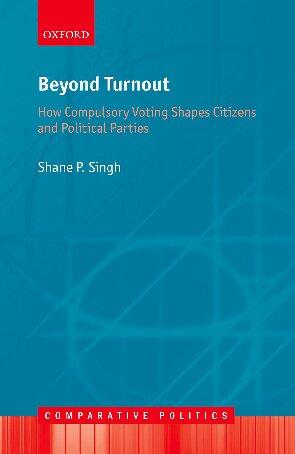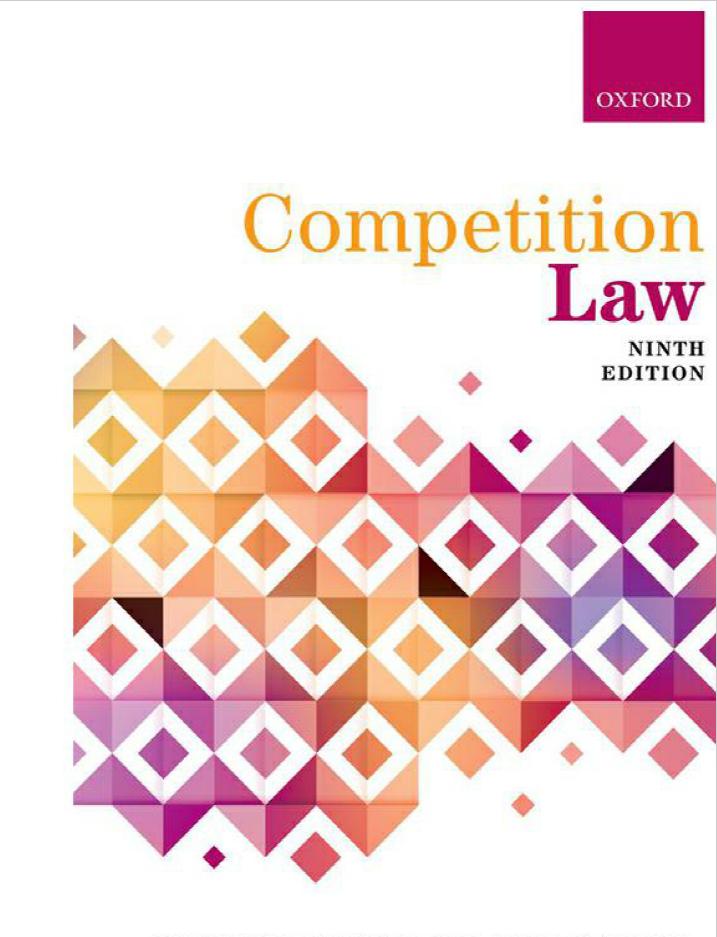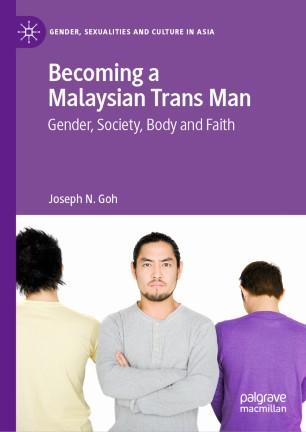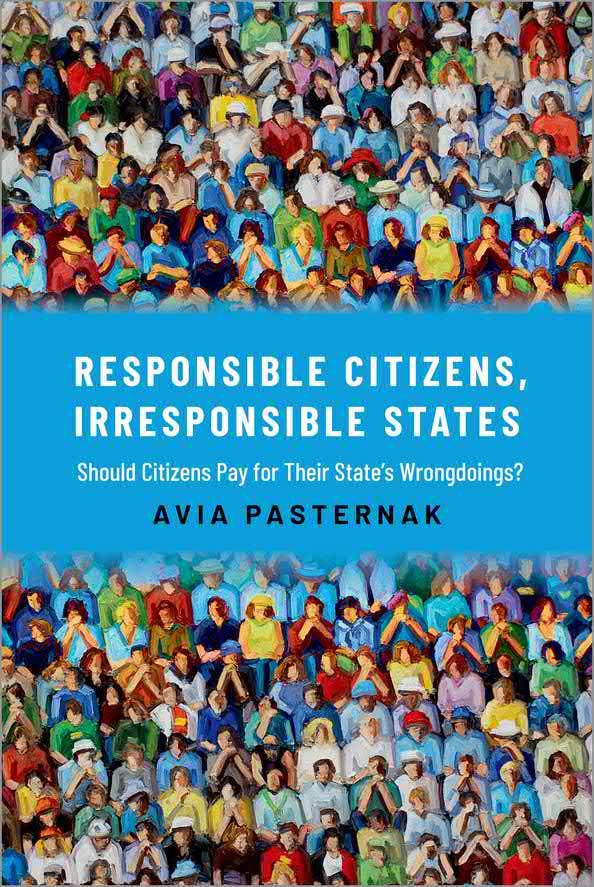ResponsibleCitizens,IrresponsibleStates: ShouldCitizensPayforTheirStates'Wrongdoings? AviaPasternak
https://ebookmass.com/product/responsible-citizensirresponsible-states-should-citizens-pay-for-their-stateswrongdoings-avia-pasternak/
Instant digital products (PDF, ePub, MOBI) ready for you
Download now and discover formats that fit your needs...
Not In Their Name: Are Citizens Culpable For Their States' Actions? Holly Lawford-Smith
https://ebookmass.com/product/not-in-their-name-are-citizens-culpablefor-their-states-actions-holly-lawford-smith/
ebookmass.com
Fit to Be Citizens?: Public Health and Race in Los Angeles, 1879-1939
https://ebookmass.com/product/fit-to-be-citizens-public-health-andrace-in-los-angeles-1879-1939/
ebookmass.com
Beyond Turnout: How Compulsory Voting Shapes Citizens and Political Parties Shane P. Singh
https://ebookmass.com/product/beyond-turnout-how-compulsory-votingshapes-citizens-and-political-parties-shane-p-singh/ ebookmass.com
(eBook PDF) Competition Law 9th Edition by Richard Whish
https://ebookmass.com/product/ebook-pdf-competition-law-9th-editionby-richard-whish/
ebookmass.com
Management of Labor and Delivery, An Issue of Obstetrics and Gynecology Clinics 1st Edition Aaron B. Caughey
https://ebookmass.com/product/management-of-labor-and-delivery-anissue-of-obstetrics-and-gynecology-clinics-1st-edition-aaron-bcaughey/ ebookmass.com
Becoming a Malaysian Trans Man: Gender, Society, Body and Faith 1st ed. Edition Joseph N. Goh
https://ebookmass.com/product/becoming-a-malaysian-trans-man-gendersociety-body-and-faith-1st-ed-edition-joseph-n-goh/
ebookmass.com
Winning the Brain Game - Fixing the 7 Fatal Flaws of Thinking Matthew E. May
https://ebookmass.com/product/winning-the-brain-game-fixingthe-7-fatal-flaws-of-thinking-matthew-e-may/
ebookmass.com
The Aztec Beta's Assassin: Their Aztec Wolves Book 3First Love/Second Chance Romance Emm Goshald
https://ebookmass.com/product/the-aztec-betas-assassin-their-aztecwolves-book-3-first-love-second-chance-romance-emm-goshald/
ebookmass.com
The Shattered Crown Maxym M. Martineau
https://ebookmass.com/product/the-shattered-crown-maxym-m-martineau/
ebookmass.com
Seafloor Geomorphology As Benthic Habitat : Geohab Atlas of Seafloor Geomorphic Features and Benthic Habitats Peter
T. Harris
https://ebookmass.com/product/seafloor-geomorphology-as-benthichabitat-geohab-atlas-of-seafloor-geomorphic-features-and-benthichabitats-peter-t-harris/ ebookmass.com
Responsible Citizens, Irresponsible States
Responsible Citizens, Irresponsible States
Should Citizens Pay for Their State’s Wrongdoings?
AVIA PASTERNAK
Oxford University Press is a department of the University of Oxford. It furthers the University’s objective of excellence in research, scholarship, and education by publishing worldwide. Oxford is a registered trade mark of Oxford University Press in the UK and certain other countries.
Published in the United States of America by Oxford University Press 198 Madison Avenue, New York, NY 10016, United States of America.
© Oxford University Press 2021
All rights reserved. No part of this publication may be reproduced, stored in a retrieval system, or transmitted, in any form or by any means, without the prior permission in writing of Oxford University Press, or as expressly permitted by law, by license, or under terms agreed with the appropriate reproduction rights organization. Inquiries concerning reproduction outside the scope of the above should be sent to the Rights Department, Oxford University Press, at the address above.
You must not circulate this work in any other form and you must impose this same condition on any acquirer.
Library of Congress Cataloging-in-Publication Data
Names: Pasternak, Avia, 1975– author.
Title: Responsible citizens, irresponsible states: should citizens pay for their state’s wrongdoings? / Avia Pasternak.
Description: New York, NY, United States of America : Oxford University Press, [2021] | Includes bibliographical references and index.
Identifiers: LCCN 2021013666 (print) | LCCN 2021013667 (ebook) | ISBN 9780197541036 (hardback) | ISBN 9780197541050 (epub)
Subjects: LCSH: Progress—Moral and ethical aspects. | Social change—Moral and ethical aspects. | Citizenship—Moral and ethical aspects. | State, The—Moral and ethical aspects. | Moral conditions. Classification: LCC HM891 .P37 2021 (print) | LCC HM891 (ebook) | DDC 303.44—dc23
LC record available at https://lccn.loc.gov/2021013666
LC ebook record available at https://lccn.loc.gov/2021013667
DOI: 10.1093/oso/9780197541036.001.0001 1 3 5 7 9 8 6 4 2
Printed by Integrated Books International, United States of America
To
my parents, Nurit and Ehud
Acknowledgments
The ideas presented in this book have been accompanying me for a long time. I started thinking about the question of citizens’ responsibility for their state’s injustice as a young political activist in Israel. I turned to examine it more systematically during my doctoral studies at Nuffield College, Oxford, and have been working and thinking about it ever since. In the course of these years I accumulated many intellectual debts to both individuals and institutions.
I’ll start with institutions. I am grateful to the British Academy for granting me the British Academy Senior Research Award, which allowed me to dedicate a whole year to this project and to bring it to completion. I am also grateful to my Department at University College London, which offers a wonderful research environment. I have had countless conversations on this work with my political philosophy colleagues in the Department—Jeff Howard, Emily McTernan, Saladin Meckled-Garcia, Adam Swift, and Albert Weale—as well as with many of my political science colleagues. These conversations taught me how closely intertwined political science and political philosophy are.
I have a long-standing intellectual debt to the Nuffield Political Theory Workshop. The Workshop was the hub around which my intellectual life as a DPhil student revolved and where many of my early thoughts about citizens’ responsibility were formed. Over the years, I was invited back to the Workshop to present drafts chapters. The Workshop was also where I met several brilliant female political philosophers, who, over the years, would become my friends
and intellectual sounding board. I am deeply grateful to David Miller, who created this institution and chaired it during my time in Oxford.
There are many individuals to whom I owe a debt of gratitude. Over the years I have had incredibly valuable exchanges with colleagues about the ideas developed in this book: Bob Goodin, who was also working on questions of complicity and compromise while we were colleagues at the Department of Government at the University of Essex; Lucas Leeman, my colleague at UCL who helped me understand the data on citizens’ attitudes to their state; Jinyu Sun, whose doctoral dissertation I had the pleasure to supervise at UCL and who offered invaluable insights about citizens’ involvement in their state in authoritarian regimes. I am also grateful to Natasha Esrow, Jeff King, Melissa Lane, Christian List, Roland Meeks, and Dorota Mokrosinska, and to Cecile Fabre, Cecile Laborde, and Anna Stilz for their support and their insights, not just about collective responsibility but about writing monographs in general.
I have presented draft chapters of this book at several workshops and research seminars and am thankful to the organizers and to the participants and audiences for their comments and suggestions. These included a workshop on artificial intelligence at the University of Cambridge, a workshop on collectivity and responsibility at Lund University, a workshop on political philosophy and social ontology at the London School of Economics, a workshop on responsibility in complex systems at Umeå University, a workshop on collective state responsibility at the Centre for Ethics at Zurich, a workshop on state agency and citizens’ complicity at Princeton’s Center for Human Values, the Princeton University Normative Methods Philosophy Seminar, the University of Richmond Political Theory Forum, the Oxford Political Theory Research Seminar, and the American political Science Association 2019 Annual Conference.
My deepest gratitude goes to colleagues and friends who took the time to read draft chapters and who sent me invaluable written comments: Stephanie Collins, Rob Jubb, Holly Lawford-Smith, David Lefkowitz, David Schweikard, and an anonymous referee for Oxford University Press. Zosia Stemplowska organized with incredible efficiency a manuscript workshop with Daniel Butt, Cecile Fabre, Sarah Fine, Tom Parr, David Miller, Zofia Stemplowska, and Victor Tadros. Christian Barry also read the whole manuscript as a referee for Oxford University Press. I am incredibly grateful to these colleagues for their generosity and their insights.
Finally, there are few individuals whose ongoing support made this book possible. I am grateful to my parents, Nurit and Ehud Pasternak, for teaching me to care about citizens’ collective responsibility in the first place, and for their infinite love and support. To Zofia Stemplowska and Sarah Fine—brilliant political philosophers, fellow working moms and close friends—for their humor, support, and encouragement. To my children, Eli and Yann, for everything they have given me. And lastly, to Roland Meeks, for his patience, wit, and IT skills, and for providing a proper cup of tea at just the right moments.
Introduction
Holding states responsible for their wrongdoings is a common practice. At the international level, states routinely pay compensation and other forms of reparation for wrongs they inflicted on other states and individuals. Consider, for example, the reparations scheme for the victims of the Holocaust, which West Germany took upon itself in the aftermath of the Second World War. By 2001, Germany had paid a total of approximately US$61.5 billion into this scheme.1 Or consider the United Nations Compensation Commission (UNCC). Established by the United Nations Security Council in 1991, its mission was to process claims against Iraq for the damage and loss it had caused during its invasion of Kuwait and the war that ensued. By 2005 the fund had awarded a total of US$52.4 billion.2 In contrast, no country has paid compensation to Iraq and to Iraqi citizens for the harm inflicted on them in the course of the 2003 US-led invasion. However, in 2017 Haider alAbadi, the Iraqi prime minister, argued that the US and Britain owed his country such compensation, given the chaos and destruction that their actions had inflicted on it.3
States also take upon themselves domestic compensation schemes. For example, in the decades that followed the fall of the
1 Ariel Colonomos and Andrea Armstrong, “German Reparations to the Jews after World War II: A Turning Point in the History of Reparation,” in The Handbook of Reparations, ed. Pablo de Greiff (Oxford: Oxford University Press 2006), 408.
2 Hans van Houtte, Hans Das, and Bart Delmartino, “The United Nations Compensation Commission,” in The Handbook of Reparations, ed. Pablo de Greiff (Oxford: Oxford University Press, 2006), 321–89 .
3 “Iraq Demands America, Britain Pay Reparations for 2003 Invasion,” The New Arab, January 19, 2017, https://english.alaraby.co.uk/english/news/2017/1/19/iraq-demandsamerica-britain-pay-reparations-for-2003-invasion.
Responsible Citizens, Irresponsible States. Avia Pasternak, Oxford University Press. © Oxford University Press 2021. DOI: 10.1093/oso/9780197541036.003.0001
dictatorial regimes in Argenita (1983) and Chile (1990), the newly established democratic governments implemented reparations programs for the victims of the grave human rights violations committed by their predecessors.4 In 2008 the Canadian government set up a reparations program for individuals who were forcibly removed as children from their indigenous communities to “residential schools.” As well as apologizing for its support of this policy, the Canadian government paid over CAN$5 billion in compensation and toward rehabilitation and commemorative projects.5
These few examples do not suggest, of course, that states always address the wrongs they committed in their distant or recent past. In the world as we know it, and given the lack of effective enforcement mechanisms at the international level, all too often states blatantly refuse or fail to address their remedial obligations. Nevertheless, it does happen, at least occasionally, that states are forced to address such obligations, or even do so willingly.
In the five cases mentioned above, the state itself was found responsible for the wrongdoings in question. Holding states responsible is a core feature of international law, the main purpose of which is to regulate the behavior of states. In international law, states are legal entities with their own legal rights and duties.6 But the idea of state responsibility can also be grounded in a deeper epistemological and ethical outlook, according to which the state itself is an institutional moral agent, acting in the world in the light of its own beliefs and desires. When moral agents wrong others,
4 José Maria Guemba, “Economic Reparations for Grave Human Rights Violations,” in The Handbook of Reparations, ed. Pablo de Greiff (Oxford: Oxford University Press, 2006), 22–51; Elisabeth Lira, “The Reparations Policy for Human Rights Violations in Chile,” in The Handbook of Reparations, ed. Pablo de Greiff (Oxford: Oxford University Press, 2006), 56–101.
5 Catherine Lu, Justice and Reconciliation in World Politics (Cambridge: Cambridge University Press, 2017), 6–7.
6 A. Cassesse, International Law in a Divided World (Oxford: Oxford University Press, 1986), 3.
we expect them to address the plight of their victims, as a way of making them whole again.
And yet, unlike individual moral agents, states are constituted of people, as well as of the decision-making and authority processes that bind them together.7 And when we hold the state responsible, its citizens will be affected. When West Germany, Iraq, Canada, Argentina and Chile discharged their compensatory liabilities to their victims, the large sums of money that were needed to finance these compensation schemes came from the public purse. Their responsibility to address their wrongdoing was distributed, de facto, to their populations.8
Is this “distributive effect” of state responsibility, from the state to its population at large, normatively justified? Common intuitions do not provide a decisive answer on this complex question. On the one hand, the reparation schemes which I mentioned—including those undertaken by West Germany, Argentina, and Chile—are commonly regarded as laudable enterprises, despite their impact on the citizenry as a whole. Indeed, many would argue that West Germany’s implementation of the 1952 scheme was a crucial step in paving its way back into the international community after World War II. But, on the other hand, another common intuition is that at least the oppressed subjects of dictatorial regimes should not be bearing the costs of their state’s policies. This latter view is expressed, for example, in Naomi Klein’s scathing critique of the UNCC, which, she argues, ended up imposing unacceptable
7 Tracy Isaacs, “Collective Moral Responsibility and Collective Intention,” Midwest Studies in Philosophy 30, no. 1 (2006): 59–73.
8 For an analysis of how reparation schemes are financed, especially in transitional regimes, see Alexander Segovia, “Financing Reparations Programs,” in The Handbook of Reparations, ed. Pablo de Greiff (Oxford: Oxford University Press, 2006), 651–73. This analysis demonstrates that the state typically uses its public budget. Admittedly this is a simplified account of how states finance their liabilities. In reality, public budgets are much more complex, as governments can, inter alia, borrow the money, or impose the obligation on future generations by deferring repayment. But for the purposes of the discussion here I leave such complications aside. I assume it is possible to draw some link between the state’s compensatory liabilities and the resources it draws from its current population.
burdens on the people of Iraq, who were “themselves Saddam’s primary victims.”9
Perhaps it could be argued that the distributive effect is more easily justified in democratic states, given that their citizens are served by their state and have various opportunities to take part in its decision-making process. But here too it is fairly easy to identify citizens who seem to have a valid argument against their state imposing on them a share of the burden. Consider citizens who were very young, or not even born, when the wrongs in question were committed. Or consider citizens who did all that was in their power to resist the implementation of these wrongful policies. Or consider the citizens who are burdened with compensation for wrongs that were hidden from them by their governments. In all these cases even democratic citizens find themselves encumbered with responsibilities for outcomes they tried to prevent or had no control over. Should they be the ones paying the price? There are reasons to doubt, Larry May tells us, the “fairness of a policy which creates the same penalty for all members . . . when these members had decidedly different contributions to the criminal result.”10 In a similar spirit James Crawford and Jeremy Watkins tell us that the distributive effect may seem as unfair and ethically backwards as the treatment meted out under primitive systems of collective responsibility in which whole tribes or nations are subject to reprisals: after all, in both set-ups innocent people are called upon to pay the price for the misdeeds and mistakes of their rulers.11
9 Naomi Klein, “Why Is War-Torn Iraq Giving $190,000 to Toys R Us?,” The Guardian, October 16, 2004, http://www.guardian.co.uk/world/2004/oct/16/iraq.comment.
10 Larry May, The Morality of Groups: Collective Responsibility, Group-Based Harm, and Corporate Rights (Notre Dame, IN: University of Notre Dame Press, 1987), 104.
11 James Crawford and Jeremy Watkins, “International Responsibility,” in The Philosophy of International Law, ed. Samantha Besson and John Tasioulas (Oxford: Oxford University Press, 2010), 290.
Notice that the fact that state responsibility has a distributive effect is hardly surprising in and of itself. Indeed, a similar impact often occurs when an individual offender pays compensation, and those in their vicinity—e.g., family members, creditors, or employees— suffer as a result. But, as Crawford and Watkins indicate, in the case of state responsibility, the distributive effect is more striking, for various reasons. First, unlike in the case of individual wrongdoers, it is very hard to imagine a scenario where the state’s corporate liabilities will not directly affect its citizenry. The distributive effect of state responsibility seems unavoidable, given the very corporate nature of the state. Second, as the ultimate policymaker and law enforcer of the land, the state has the capacity to decide upon the pattern of the distribution of its corporate liabilities, and to enforce it upon its citizens. Citizens have very little opportunity to avoid these costs. Third, given that the raison-d’être of the state is securing its citizens’ rights and well-being, channeling its resources toward compensation schemes may come into conflict with its ability to provide for the needs of its citizens. It follows then that understanding when and how the distributive effect is justified matters, for several reasons. For one thing, it bears on the decisions made in international bodies, such as the United Nations Security Council, which have the authority to impose schemes of compensation on delinquent states. As we will see throughout this book, the way in which such schemes are designed can have a serious impact on the population of the target state, and that impact ought to be taken into account. Similarly, the discussion can help to shape state policies, and their own design of compensation schemes within the state. Finally, the question bears on citizens’ assessment of their own state policies. After all, if citizens are not persuaded that there is a good enough justification for the burdens that fall on them as result of their state’s reparatory commitments, they might be less inclined to support its compensation schemes.
The task of the present book is to explore how the distributive effect of the state’s responsibility should be managed, across various
regime types. The argument I develop does not support the current approach in both domestic and international politics, which by default lets the burden fall on the citizens of the wrongdoing state at large. But it also does not side with those who argue that the distribution of the burden should target those members of the state— such as government officials—who are more heavily involved in the state’s policymaking. My account carves a middle ground between these two positions, and offers a solution that is sensitive to both pragmatic and normative considerations.
In the rest of the Introduction I will briefly describe the three core themes I develop in this book. First, I offer a novel justification of citizens’ obligation to share in their state’s remedial obligations, one that revolves around their participation in their state. Second, I examine the application of this justification to the citizens of both democratic and nondemocratic states. Third, I argue that the distribution of responsibility in the state should be case sensitive and informed by the nature of the state and its relationship with its citizens.
Before I turn to briefly present these themes, it’s worth noting that the question of the distributive effect is distinct from another important debate in political theory, which concerns the source and scope of citizens’ political obligations. It is a common view among political theorists (and citizens) that in reasonably just states, citizens have a general moral obligation to accept the authority of the state and to obey its laws. This commitment implies that, should the state implement a compensation scheme, its citizens ought to accept the burden it distributes on them, even if they think this burden cannot be justified. But our concern here is not with the question of whether citizens should comply with their state’s decisions, but with the prior question of whether the distributive effect is justified in the first place. Not only that, as we shall see later on, the problem of the distributive effect arises also in states that are not reasonably just, and where, it is commonly thought, citizens do not have prima facie political obligations to accept their state’s laws. Here too we
would like to know whether the state or the international community are justified in demanding that citizens accept the burdens that result from their state’s actions.
I.1
Intentional Citizenship
As I briefly mentioned, one approach to the problem of the distributive effect follows the commonly shared intuition that those who share the blame for bringing about a wrongful harm should be charged with the task of righting it. On this view, the distribution of the burden should aim to ensure that it falls on those people within the state who wrongly contributed to the planning and/or execution of its policies. Imagine, for example, that instead of using the revenues raised by Iraq’s oil sales (under the sanctions regime that was imposed on it in the aftermath of the Gulf War), the designers of the UNCC would have targeted the assets of key officeholders in the Iraqi regime. Or imagine that instead of using its public budget to compensate Holocaust victims, West Germany would have sought to target the assets of former members of the Nazi Party. Wouldn’t such schemes be better alternatives to those that Iraq and West Germany actually deployed?
I think that the answer to this question is negative. My objection to the blame-tracking distribution is pragmatic rather than principled. I think that, as a matter of practice, it is very unlikely that a blame-tracking distribution could be successfully implemented in states as we know them, given the complex structure of the state. In order to be able to successfully meet the needs of the victims, it is almost inevitable that a state would have to deviate from a blametracking model and implement a distribution that falls more or less equally on all the citizens. Can such a distribution be justified?
The first task of this book is to develop a new justification for the distribution of the burden among the population at large. The starting point of my justification is the observation that people
commonly do feel that they are responsible, in a sense, for the actions of their state—even if they protested against them, and even if they had no control over them. Karl Jaspers expresses this sentiment in his famous essay on German Guilt, which he wrote for German audiences in the aftermath of the Second World War. There he invoked the idea of “political guilt,” which, “involving the deeds of statesmen and of the citizenry of a state, results in my having to bear the consequences of the deeds of the state whose power governs me and under whose orders I live.”12 Jaspers’s words seem to sit uneasily with the liberal individualist outlook that most Western contemporary political philosophers share. As we saw earlier, the concern here is that people should not be held liable for outcomes simply by virtue of some ascriptive property they had no control over—namely the state they happened to be born into and become a citizen of.
In the first chapters of this book I develop an argument that affirms people’s common sentiments toward their state, but is also compatible with our liberal and individualist commitments. My core suggestion is that, typically, citizenship is not merely an ascriptive property. Rather, citizenship involves various volitional acts. Citizens act in their state, and their duty to share in their state’s remedial responsibilities flows from their participation in it.
There is by now a very rich body of literature on the nature of collective action and on the duties that fall on individuals when they act together in groups. Typically, this literature focuses on small and intimate groups. It might seem implausible to suggest that the state—a complex, hierarchical, and compartmentalized institution, composed of a vast number of individuals, most of whom have no personal connection to each other, and who often disagree on how the state should be run—is a site of collective action. But I disagree. I develop the idea of what I call “intentional citizenship.”
12 Karl Jaspers, The Question of German Guilt (New York: Fordham University Press, 2000), 25.
Intentional citizens are citizens who perform the various roles their state allocates to them (pay their taxes, obey the law, vote, serve in the military, etc.). When they act so, they have a “participatory intention” to take part in their state. They see themselves as contributing, or potentially contributing, to the general maintenance of the corporate agency of their state and to the execution of its plans.13 Intentional citizens, I suggest, are participating in a very wide range of their state policies, including those they made marginal contributions to, those they disagree with, those they publicly protested against, and those they did not know about. As long as they intend to support their state itself, they are participating in the policies its decision-making process generates. Finally, I argue that as participants in their state’s actions, citizens incur a special responsibility with regard to the outcomes of these actions. It is thus permissible to demand that all of them contribute to the collective effort of meeting the state’s victims’ demands, regardless of their personal level of blame. In short, intentional citizenship can justify the real-world practice of letting the burden fall on citizens at large. However, there is an important caveat to this argument. I believe that the intentional-citizenship-based justification of the distributive effect applies only when citizens’ participatory intentions are genuine. Genuine participation requires that citizens are not forced against their will to take part in their state. Instead, they are motivated to act in it by their own reasons—for example, because they see their citizenship as constitutive of their self-identity, or they enjoy the various opportunities it provides them with. Citizens who are genuinely participants in their state are liable for the costs of their state’s wrongdoings. But citizens who see the state as an alien force in their lives, and who would have left it, if only they could, are not genuine participants in their state, and their
13 I draw here on Christopher Kutz’s theory of collective action. See Christopher Kutz, Complicity: Ethics and Law for a Collective Age (Cambridge: Cambridge University Press, 2000).
membership in it does not suffice, in itself, to justify the distributive effect being applied to them. The justification I develop for an equal distribution of the burden on the population at large relies then, to a great extent, on citizens’ internal attitudes.
I.2 Intentional Citizenship in Democracies and in Autocracies
Given that the intentional citizenship argument relies on citizens’ subjective attitudes, it is vulnerable to an immediate objection: How common is intentional citizenship in the real world, across various states and regime types? If the answer to this question is “not at all,” then my argument, as theoretically sound as it may be, has no action-guiding implications.
This is an empirical objection, so the answer to it requires an empirical examination of people’s attitudes to their citizenship and their state. It is fairly easy to carry out this examination in democratic states. Here I confirm the extent of intentional citizenship by looking at attitude surveys on people’s views about their national identity and their state. The data suggests that in democracies, intentional citizenship is widespread among the population at large. There are some exceptions here. In democracies with strong secessionist minorities, there are those who see themselves as forced to live in a state that conflicts with their nationalist aspirations. And in most real-world democracies, imperfect as they are, there are groups of oppressed and disadvantaged citizens who are deeply alienated from their state. But, by and large, intentional citizenship is fairly widespread among democratic citizens.
However, the picture is different in nondemocratic, or authoritarian, states. Such states receive little attention in mainstream political philosophy, which tends to focus its attention on the design of the just and democratic state, and on the rights and obligations
of democratic citizens. The lack of attention to nondemocracies is perhaps surprising, given the fact that a quarter of the states in our world today are not democratic, and about a third of the world’s population lives in nondemocratic states. Not only that, but nondemocratic states greatly differ from each other in their regime structure, the type and level of rights they grant their citizens, and the level of repression they deploy to ensure their citizens’ compliance.
A second goal of this book, then, is to begin to fill this lacuna, by paying closer attention to the relationship between citizens and their state in nondemocratic regimes and the obligations that flow from it. I examine some of the modes of civic participation, state repression, and state manipulation that are deployed by nondemocratic states. I use this data in order to examine the extent of intentional citizenship in such states in general, and, following from this, the extent to which their citizens are liable for the remedial costs of their state’s wrongdoing. I conclude that in most (but not all) types of nondemocracies, intentional citizenship is not prevalent, and that therefore it is harder to justify the distributive effect in those states.
I.3 Distributing State Responsibility: A Discriminatory Framework
The current legal framework of international affairs is blind to the internal structure of the state. All states are equal in the eyes of international law, regardless of their internal decision-making and authority mechanisms. Based on the empirical findings I mentioned above, the third core argument of this book challenges this nondiscriminatory framework. In doing that, it joins a long line of political philosophers and legal theorists who have raised similar concerns. Supporters of the “odious debt doctrine,” for example, argue that debts that are incurred by repressive governments should
not pass to their democratic successors.14 Recent scholarship on trade in natural resources argues that oppressive governments should have the right to trade in the resources of their country, given that their true owner is the people.15 Others question the rights of authoritarian states to exercise territorial sovereignty.16 I make similar observations with regard to the practice of holding states remedially responsible for their wrongdoings. I reject the one-size-fits-all approach to state responsibility, which ignores the way it falls on the citizenry. The core problem with this approach, as we already saw, is that in some states, and with regard to some or all of their wrongdoings, the burden ought not to fall on the citizens at large. In those states, the harm that falls on citizens when their state is held accountable comes with a heavy moral price. In those states, then, alternative routes for the distribution of responsibility, which avoid this cost, should be explored.
My analysis suggests, then, that the way in which we hold states responsible for their wrongdoings at the international level, and the way in which states should internally distribute their remedial responsibilities, ought to be context-sensitive. To assess if and how the burden should fall on citizens, we must look into the regime type of the state in question, both at the time it committed the wrongdoing and at present, the extent of intentional citizenship in it, as well as other related factors that will be explored throughout the book (including the extent to which citizens have benefited from their state’s wrongdoing and whether they have a special relation to its victims).17 These factors shape the appropriate pattern
14 Jeff King, “Odious Debt: The Terms of the Debate,” North Carolina Journal of International Law 32, no. 4 (2006), 605–667.
15 Leif Wenar, “Property Rights and the Resource Curse,” Philosophy and Public Affairs 36, no. 1 (2008), 2–32.
16 Anna Stilz, “Nations, States and Territory,” Ethics 112, no. 3 (2011), 572–601.
17 This conclusion is inspired by and follows the recommendations offered by David Miller, in his paper on the distribution of remedial responsibilities. Miller recommends a pluralist approach to the distribution question, one which first identifies the various agents who may be connected to the victim in some way, and then assesses the strength of that connection and apportions the responsibility accordingly. See David Miller, “Distributing Responsibilities,” Journal of Political Philosophy 9, no. 4 (2001), 453–71.
of distribution in the state. States should be held remedially responsible for their wrongdoing, but the precise way in which we hold them responsible should be constrained by and sensitive to the impact on their citizens, and the extent to which they are liable to incur the burden.
I.4 Plan of the Book
The book proceeds in two stages. In the first four chapters I present the problem of the distributive effect and develop my justification for a distribution of the burden among the citizenship at large. In the last three chapters I build on this analysis to offer a comprehensive framework for the distribution of responsibility in the state, one that is context-dependent and sensitive to the various relevant factors at play. I also demonstrate some of the pragmatic implications of this model.
Chapter 1 sets the stage for the discussion, by presenting the problem of the distributive effect, and the literature around it. It first defends the idea that states are corporate moral agents, and as such morally responsible for their wrongdoings in at least two distinct senses: they may be blameworthy when they act wrongly, and they incur forward-looking responsibilities to address the wrong. Examining the existing literature on the distributive effect, I distinguish between two core views on how this distribution should be designed. The first approach, which I refer to as “proportional distribution,” argues that the distribution should track the state’s members’ blameworthy contributions to their state’s wrongdoings. The second approach—the “nonproportional distribution”—lets the burden fall on the population at large.
In Chapter 2 I begin to develop my justification for a nonproportional distribution. I present the theoretical model according to which people who intentionally participate in a collective act are liable, in some sense, for the outcomes of that
collective act, and I explore the moral obligations that flow from participation in a collective activity. Specifically, I suggest that agents who genuinely participate in a group, with their participation not being forced on them against their will, are liable for a nonproportional share of their group’s remedial obligations, in circumstances where a proportional distribution is not feasible or is very costly.
Chapter 3 applies the idea of intentional participation in the state. Here I show that being a citizen typically involves acting together in the state, and that citizens who act together in the state are taking part in a very wide range of their state’s policies, including policies they object to or are unaware of. I then defend the claim that when participation in the state is genuine, it grounds citizens’ obligation to accept a nonproportional share of their state’s remedial obligations.
Chapter 4 turns to examine the application of the intentional citizenship framework to real-world states. I examine people’s attitudes to their states, as they are reported in cross-national attitude surveys on national identity: the World Values Survey, the Eurobarometer, the International Social Programme on National Identity Survey, and the Afrobarometer. I conclude that in many countries, and certainly in most democratic countries, large majorities have a fairly strong attachment to their country or state and are intentional participants in their state. But I also identify groups who remain outside the model of intentional citizenship. I then turn to the literature in comparative politics on nondemocratic states, and draw conclusions on the extent of intentional citizenship in them, based on the patterns of civic participation, state oppression, and state manipulation.
In chapter 5 I build on these findings and develop a viable model for the distribution of the state’s responsibility within the state. First, I examine alternative justifications for the nonproportional, or equal, distribution, which do not revolve around intentional participation. These include democratic authorization, benefiting from
a wrongdoing, having a special capacity to address it, and having special associative obligations to the victims of the wrongdoing. I show that these factors have limited application in real-world cases of state wrongdoing. I then propose the process by which we should determine how a state’s responsibility should be distributed between its citizens in specific cases. This process involves the examination of several factors: the extent to which we can determine the level of blame of key actors within the state, our assessment of the scope of intentional citizenship in the state, and the nature of the regime that perpetrates the wrongdoing. These factors will determine the shape of the distribution that is appropriate, given the specific circumstances at hand. In practical terms, this process is likely to lead to the conclusion that, by and large, in democratic states, an equal distribution will be overall justified, while in many authoritarian states it will not. When an equal distribution cannot be overall justified, alternative solutions should be weighed against the option of imposing the burden on the state’s citizens: leaving the burden with the victims, or transferring some of it to the international community.
Chapter 6 considers the pragmatic implications of my proposed model for public international law. I first examine the way in which current practices in international law extract compensations from delinquent states. Here I focus in particular on the UNCC—a landmark and influential scheme—which extracted compensation from Iraq in the aftermath of the Gulf War. Given the design of the UNCC, the burden of compensation fell on ordinary Iraqis at large. I examine the impact, given the regime character of the Iraqi state under the rule of Saddam Hussein’s Ba‘ath Party. I then turn to assess the implications of my framework for the idea of state punishment. Here I focus on two influential justifications of punishment in general: the expressive view and the duties to victims view. I show that the idea of punishing states is plausible on both accounts. I then demonstrate how my proposed framework should shape the way we punish states.

